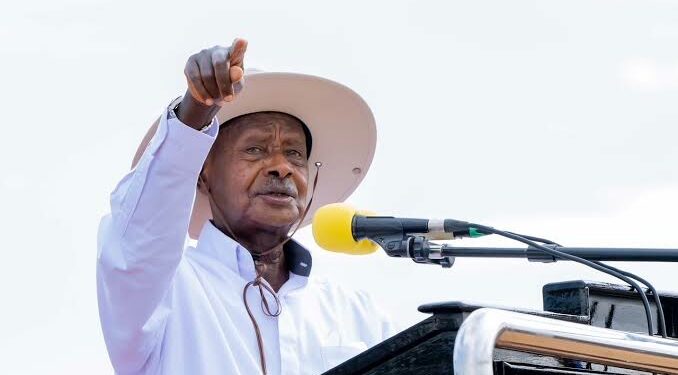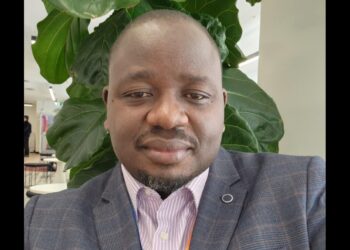In the annals of African politics, very few leaders have stood the test of time like General Yoweri Kaguta Museveni Tibuhaburwa, the President of the Republic of Uganda. After close to four decades of steering the ship of state, Museveni continues to emerge as a more saleable candidate than his competitors, despite his advanced age. To many, he is not just a leader but a symbol of stability, a fountain of wisdom, and the custodian of Uganda’s progress.
As the old adage goes, “A tree is judged by the fruits it bears.” Uganda today bears testimony to the fruits of Museveni’s leadership under the National Resistance Movement (NRM). Critics may say, “He has been there too long,” but the reality is that his leadership continues to provide the steady hand the nation needs in times of global uncertainty.
The Foundation of Peace and Security
The Bible in Isaiah 32:17 reminds us: “The fruit of righteousness will be peace; the effect of righteousness will be quietness and confidence forever.” When Museveni and his comrades in the National Resistance Army (NRA) took power in 1986, Uganda was a country bruised and battered by coups, dictatorships, and lawlessness. Today, Uganda is known as one of the most stable countries in the region, thanks to Museveni’s tireless efforts in building and professionalizing the Uganda People’s Defense Forces (UPDF).
Without peace, there can be no development. This stability has not only secured our borders but has also made Uganda a refuge for millions of people from neighboring nations like South Sudan, the Democratic Republic of Congo, and Somalia. In a turbulent region, Museveni’s Uganda shines like a beacon of calm.
Economic Growth and Transformation
It is often said, “A nation that cannot feed itself cannot rule itself.” When the NRM government came to power in 1986, Uganda’s economy was on its knees.
Inflation was running above 200%, foreign investors had fled, and even basic goods like sugar and soap were luxuries. Under President Museveni’s leadership, the country has witnessed a paradigm shift from a collapsed economy to one that is integrated into global markets.
Some key highlights include:
Macro-economic Stability: Inflation has largely been kept in single digits over the last three decades, compared to the runaway inflation of the 1970s and early 80s. This stability has created an environment conducive for business and investment.
Infrastructure Development: Major roads and highways like the Kampala–Masaka Highway, Gulu Highway, and Entebbe Expressway have reduced travel time and improved trade. The Standard Gauge Railway project and energy dams like Isimba and Karuma are part of the bigger industrialization agenda.
Energy Expansion: From less than 50MW in 1986, Uganda now generates over 1,200MW of electricity, ensuring that industries and households can function.
Agricultural Modernization: Through Operation Wealth Creation (OWC) and now the Parish Development Model (PDM), Museveni has championed transforming subsistence farmers (abalimila Ekidha Kyonka) into commercial producers. Cash crops like coffee, maize, and fruits are now Uganda’s largest export earners. Uganda is the largest coffee exporter in Africa after Ethiopia.
Oil and Gas Sector: The discovery and upcoming production of oil in the Albertine region with projects like the East African Crude Oil Pipeline (EACOP), promises to lift Uganda into a middle-income country.
Education and Health
“If you want to plan for a year, plant rice. If you want to plan for ten years, plant trees. But if you want to plan for a hundred years, educate your children.” This Chinese proverb fits well with Uganda’s story under Museveni.
Before 1986, education was a privilege of the few. Today, under the NRM government, millions of children are in classrooms thanks to:
Universal Primary Education (UPE) launched in 1997, which opened schools to every child regardless of background.
Universal Secondary Education (USE) introduced in 2007, which extended opportunity beyond primary school.
The Skilling Uganda program and technical/vocational institutes, preparing youth for employment in practical trades.
Investment in universities, including expansions at Makerere, Kyambogo, Gulu, Mbarara University of Science and Technology, and creation of new ones like Soroti, Kabale, Busitema and Lira Universities.
These policies have resulted in Uganda having one of the youngest and most literate populations in Africa. Indeed, education is the ladder by which poverty is climbed out of and Museveni’s vision has built that ladder.
On the health front, Uganda has been recognized globally for progress:
In the 1990s, Uganda became the first African country to drastically reduce HIV/AIDS prevalence, from nearly 18% to around 6% through aggressive awareness and prevention campaigns.
The government has expanded health infrastructure with new regional referral hospitals in places like Mubende, Moroto, Kayunga and Arua, plus specialized centers like the Mulago Heart Institute and Cancer Institute.
Free immunization programs have drastically reduced child mortality rates.
Uganda’s quick response to outbreaks like Ebola and COVID-19 has been praised internationally, preventing disasters that befell other nations.
In Hosea 4:6, the Lord says: “My people are destroyed for lack of knowledge.” Through education and healthcare, Museveni has shielded Uganda from this destruction. A healthy, educated population is the foundation of prosperity.
Regional and International Leadership
Museveni has not only been a leader at home but also a respected figure in Africa and beyond. He has played a critical role in peace negotiations in South Sudan, the Democratic Republic of Congo, and Somalia. His stance on Pan-Africanism, that Africa must unite politically and economically to free itself from external manipulation, is still relevant today.
Winston Churchill once called Uganda “The Pearl of Africa.” Under Museveni’s stewardship, the pearl has been polished and positioned as a key player on the international stage.
Experience vs. Experimentation
The question many Ugandans ask is: Should we risk handing the nation to political amateurs whose only weapon is rhetoric, or should we trust a tested leader who has delivered before? The proverb says, “Better the devil you know than the angel you don’t.”
Museveni has experience that no other Ugandan leader, past or present can match. He is like a seasoned pilot who has flown through storms and turbulence but always landed the plane safely. To remove such a captain in the middle of the journey would be reckless.
Why Age is Not a Limitation
Critics often point to Museveni’s age, but age alone is not a disqualifier of good leadership. The Bible is full of examples of elders who led their people wisely, Moses led Israel out of Egypt at 80 years old. In many cultures, age is associated with wisdom.
As Museveni himself often says, “It is not the years you live, but what you do in those years that matters.” Uganda needs not just a young leader, but a wise leader who can balance youthful ambition with tested wisdom.
The Call to Ugandans
In conclusion, the nation stands at a crossroads. “When the roots are deep, there is no reason to fear the wind.” Museveni has laid deep roots of peace, economic progress, education, health, and regional stability.
Ugandans must ask themselves: do we uproot the tree that has given us shade for four decades, or do we strengthen it to continue bearing fruit?
General Yoweri Kaguta Museveni remains the most saleable candidate, not because he is perfect, but because he is tested, proven, and still capable of delivering Uganda to the Promised Land.
As Joshua 1:9 says, “Be strong and courageous. Do not be afraid; do not be discouraged, for the Lord your God will be with you wherever you go.” Uganda must march on, with Museveni at the helm, until the vision of socio-economic transformation and prosperity for all is achieved.
For God and My Country.
The author is an NRM Mobilizer-0754337420
Phillip R. Ongadia
Do you have a story in your community or an opinion to share with us: Email us at editorial@watchdoguganda.com














